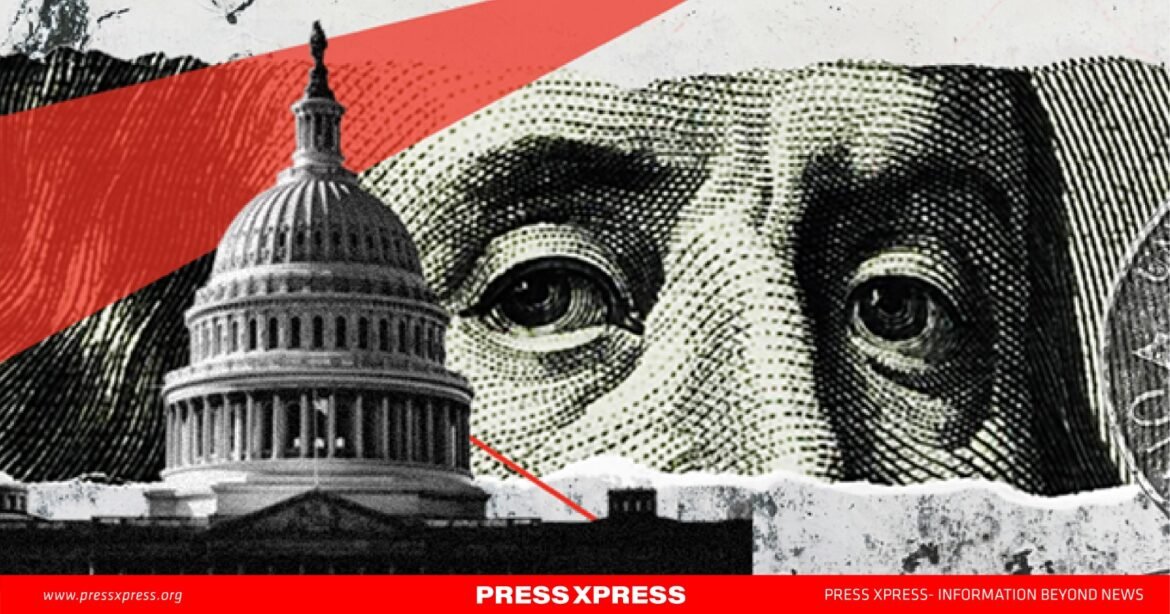- Pennsylvania receives the most ad funds, with $373.5 million from both campaigns combined.
- Harris’s digital ads focus on women, especially reproductive rights and economic equality messages.
- Economic stability and immigration are primary themes in Trump’s ads across swing states.
- 68% of swing-state voters report feeling overwhelmed by nonstop political ads.
As the 2024 U.S. presidential race accelerates, the campaign advertising blitz in swing states has reached unparalleled proportions. The political spotlight focuses sharply on key battlegrounds such as Pennsylvania, Georgia, Michigan, Nevada, North Carolina, and Wisconsin, with advertising budgets surpassing previous records. Kamala Harris and Donald Trump are sparing no expense to sway undecided voters in these pivotal regions, pouring millions into both traditional and digital ad spaces.
Unlike other states, swing states are inundated with not only television and billboard ads but also hyper-targeted digital content on platforms like Facebook, Instagram, and YouTube. The stakes are high: with each party investing heavily, the outcome of the election may hinge on how well these ads resonate with specific demographics and voting blocs.
Campaign Spending Hits Historic Highs
The 2024 election is set to become the most financially demanding race in U.S. history, with advertising forming the core of this expenditure. The Harris campaign, in particular, has allocated over $1.1 billion to various advertising channels, almost doubling the $602 million invested by the Trump campaign. Combined, the two campaigns have funneled $1.36 billion into swing states alone.
Pennsylvania, a perennial battleground, has attracted the highest amount of this spending at $373.5 million, with both campaigns seeing it as a key state that could tip the electoral scales. In Georgia, Michigan, and Arizona, campaign advertising ranges from $150 million to $250 million per state, with funds targeting both urban and rural regions where turnout could shift the electoral map.
This concentrated financial outlay illustrates the vital importance of swing states, as they often decide the presidency. The financial stakes also highlight the escalating cost of American elections, where visibility and voter influence come with a heavy price tag.

Digital Ads and Data-Driven Targeting
Political campaigns now deploy data-driven digital ads to pinpoint specific voter demographics with remarkable precision. Using social media and ad-tech algorithms, campaigns target voters based on age, location, interests, and even browsing history.
The Harris campaign has invested over $10 million in promoting Facebook pages like “The Daily Scroll,” which subtly push pro-Harris narratives under the guise of generic news updates. Nearly 25% of Harris’s digital ads on platforms like Facebook and Instagram are directed toward women, reflecting a strategic emphasis on reproductive rights and economic equality.
Trump’s digital approach emphasizes economic grievances, inflation, and immigration, appealing to a conservative base wary of current economic policies. For instance, his team’s advertisements frequently address the cost of living, which resonates strongly in states like Michigan and Pennsylvania, where economic anxiety is prevalent. This sophisticated targeting enables campaigns to directly appeal to voters’ specific concerns, but it also raises ethical questions about privacy, manipulation, and the overall transparency of political messaging.

The Ground Game
Beyond digital outreach, traditional advertising remains a powerful tool in these swing states. Television ads still dominate political ad spending, with both campaigns purchasing prime-time slots and local news placements in major cities like Philadelphia, Phoenix, and Milwaukee. Pro-Harris ads often emphasize her prosecutorial experience, positioning her as a defender of middle-class values and reproductive rights.
Conversely, Trump’s television spots pivot to themes like economic stability and law enforcement, criticizing Harris’s policies as being detrimental to everyday Americans. The Trump campaign has also rolled out aggressive immigration-focused ads in Arizona, where the issue remains central. Billboards, lawn signs, and radio spots reinforce these messages on the ground, creating a landscape where the political contest is unavoidable.
Notably, the advertising blitz extends to down-ballot races, including highly contested Senate seats in Montana and North Carolina, where local issues and the influence of national politics intersect.

Voter Reactions
In swing states, the advertising deluge has created a growing sense of voter fatigue. Residents report that political ads are nearly impossible to avoid, whether on their phones, television screens, or front lawns.
In Pennsylvania, a state heavily targeted by both campaigns, voters are often exposed to dozens of political ads daily. A recent survey by the University of Pennsylvania found that 68% of swing state voters feel overwhelmed by the constant ads, with many expressing irritation at the campaign saturation. Some voters are skeptical of both campaigns, believing that the sheer volume of ads detracts from meaningful dialogue.
This sentiment is especially strong among young voters; a recent study by Georgetown University indicated that 57% of voters under 30 feel that excessive advertising reduces their interest in political engagement. Despite the frustrations, studies show that these ads do influence voting behavior, especially among undecided voters. Data from the Wesleyan Media Project revealed that swing state residents exposed to more than 50 political ads a week are 12% more likely to vote, highlighting the paradox of engagement and irritation within these communities.
The Cost of Influence in Modern Elections
The immense cost of the 2024 campaign raises important questions about the impact of money in politics. For every candidate who can afford this level of visibility, many others are marginalized, sidelined by financial constraints that restrict their reach. The Harris-Trump spending duel in swing states underscores how heavily the modern electoral process depends on advertising, potentially disadvantaging lesser-funded candidates.
Moreover, the heavy reliance on data-driven tactics may prioritize personal influence over informed decision-making, transforming political engagement into a commercialized experience. Some experts, like those at the Brennan Center for Justice, warn that this trend risks creating a “pay-to-win” political culture, where candidates’ influence is more about budget than policy or public service. As campaign spending continues to rise, concerns about voter disillusionment, campaign transparency, and the future of U.S. democracy will only intensify.


